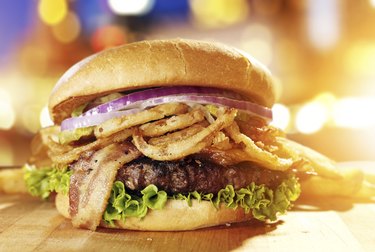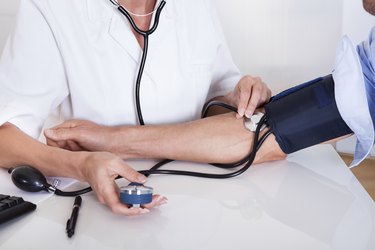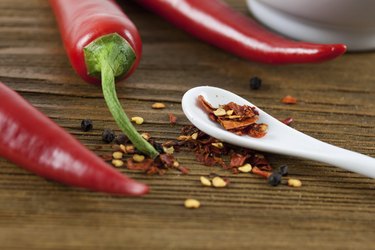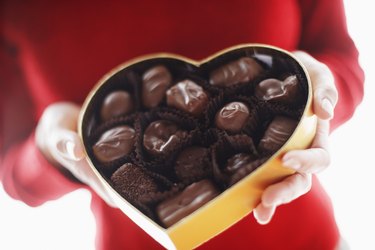
Your heart rate can be affected by your emotional state, physical activity and the foods you eat and drink. You may notice that after drinking a cup of coffee or eating certain foods, your heart begins to beat more rapidly. Keep a record of these instances. Write down how often it happens and which food or drink precipitated the rapid heart rate; also note if you were experiencing stress or anxiety at the time. Give this information to your physician, who can determine if you have a serious condition.
Coffee and Tea
Video of the Day

Caffeine is a natural stimulant found in coffee beans, tea and other foods. Some manufacturers also add caffeine to certain drinks, medicines and foods. Caffeine has the ability to increase your heart rate, blood pressure and brain activity. For healthy people, this increased heart rate is usually not a problem. But in a March 2009 article published in "The Annals of Pharmacotherapy," Dr. David E. Lanfear noted that individuals with hypertension or heart disease are at risk after drinking just two cans of a caffeinated energy drink.
Video of the Day
Spicy Peppers

Eating spicy foods, especially chili and curries, can raise your heart rate and stimulate the release of endorphins, chemicals that induce feelings of excitement and pleasure. Capsaicin is a chemical found in spicy peppers. In the June 2009 issue of "Clinical Nutrition," Helene Christine Reinbach, Ph.D., reported on a study in which capsaicin decreased the appetite and increased the energy level and heart rates of patients who ingested peppers.
Chocolate

You may notice that your heart rate increases slightly after eating chocolate. In a 2007 article, CBS news reported on a British study showing some people get "more of a buzz from eating chocolate than from a passionate kiss." Cocoa, the beans from which chocolate is made, can increase your blood flow, prevent clotting and, in the process, raise your heart rate. Caffeine is naturally found in cocoa beans. Dark chocolate has more caffeine than milk chocolate. Nine regular Hershey Kisses have 11 milligrams of caffeine, while the same serving of dark chocolate Hershey Kisses has 25 milligrams.